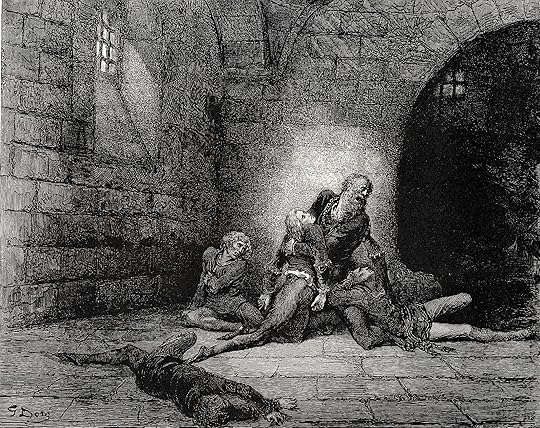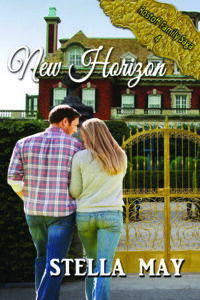C.D. Hersh's Blog, page 15
December 12, 2024
Friday Feature The Board Games
This time of year we get together with family and friends. The question is what to do when you get together? May we suggest board games.
[image error]
For many years folks played board games at night with their kids. This of course was before the widespread use of video game consoles and even TV. Imagine spending hours sitting around looking at a game board trying to figure out the next move to make. Sound boring? Or are you playing board games now?
As writers, don’t we sit at our desks trying to figure out our characters’ next moves? Bet that doesn’t sound boring, if you are a writer. Have you ever thought of using a board game in a novel? How about using a board game as a way to escape from prison?
Too fanciful you say? Well hold on a minute. The British secret service MI9 came up with a way for captured British airman to escape POW camps. They sent them the board game Monopoly. MI9 conspired with the British manufacture of the game to produce “special edition” Monopoly sets with a red dot on the Free Parking space. While that looked like a printing error the dot meant possible freedom. The Monopoly escape kits had compasses and files disguised as playing pieces. French, German, and Italian bank notes were hidden in among the Monopoly money. Maps, printed on silk, were concealed within the board itself. British historians believe the Monopoly games could have helped thousands of captured soldiers escape from their prison camps.
Though silk maps from that era exist in libraries, homes and museums around the world, none of the original rigged Monopoly sets still remain. You see the airmen were instructed to destroy the special game sets so they would not be discovered.
Do you plan to have a game board in one of your books or have you already used the idea? Let us know.
December 10, 2024
Wednesday Special Spotlight recipe for Mock Champagne
Mock Champagne Cranberry Sangria by the glass
(original recipe by C.D. Hersh)
For each 8-ounce champagne glass you will need:

1/4 cup brewed Hibiscus Watermelon tea (we use Republic of Tea brand)
1/8 cup brewed Chamomile honey and vanilla tea (we use Twinings brand)
Sparking apple cider
1 rounded TBS jellied cranberry sauce (smooth or whole berry)
Fresh fruits (grapes, whole cranberries, pineapple chunks, peeled sliced star fruit, or peeled kiwi—or fruits of your choice)
Short skewer or sizzle stick
Directions:
Thread fruits on a skewer or swizzle stick and set aside.
Place teas and cranberry sauce in the glass. Mix until sauce dissolves. Fill glass with sparkling apple cider. Enjoy!
In an 8-ounce champagne flute, place ¼ cup white grape juice and 1/8 cup Chamomile tea. Fill glass with regular or diet ginger ale. To give the drink a holiday flare, add a slice of star fruit and a couple of whole, fresh cranberries to the glass before adding the liquids.
Enjoy as much of this refreshing drink as you want for the holidays!
December 9, 2024
Tell Again Tuesday Writing Homework for 2025
Book Marketing and PR Part XV: Connection and PurposeBy Ann Marie Nieves

I have some homework for you.
For 2025, I want you to really think about two things: connection and purpose.
Try to . . .
For the rest of the blog go to:December 5, 2024
Friday Feature after Thanksgiving
Most people eat turkey mainly at Thanksgiving dinner and perhaps a sandwich later that night, which is my favorite time. There is always a goodly amount of extra meat and cooks often wonder what to do with the leftovers, so they don’t taste like dried out leftovers. Sure, there’s turkey soup and enough meat to make more sandwiches than a family can consume. So how about a dish fit for a king and everyone in the realm? This recipe is a perfect, and easy, way to enjoy a warm, filling meal without that leftover taste.
Turkey ala King
Tossed Salad
Large Biscuits
Dry White Wine
Turkey ala King 2½ tbsp. butter or olive oil
2½ tbsp. butter or olive oil
⅓ cup onion, chopped
¼ cup celery, chopped
⅓ cup carrots, chopped
5 mushrooms, sliced
2½ tbsp. flour
1½ cups chicken stock
¼ cup dry white wine
¾ cup heavy cream
½ tsp. dried sage
⅛ tsp. salt
Freshly ground pepper to taste
1 cup or so chopped turkey, bitesize, room temp.
⅓ cup frozen peas, thawed
Melt butter in a Dutch oven over medium heat. You’ll need a pot this size for easy stirring. Stir in onion, celery, carrots, and mushrooms. Cook until onion is translucent, 5 – 7 minutes. Stir frequently so as not to burn onion.
Sprinkle flour over veggies. Stir constantly for 1 minute. Reduce heat then slowly add stock, wine, and cream. Continue to stir until sauce thickens, 5 – 8 minutes. Mix in sage, salt, and pepper.
Stir in turkey and peas. Reduce heat to simmer. Cook, stirring often, until turkey is heated through.
Serve over split refrigerator biscuits such Pillsbury Grands. This dish lasts 4 days in the fridge and freezes well.
May you enjoy all the days of your life filled with good friends, laughter, and seated around a well-laden table!
Sloane
 Sloane Taylor is an Award-Winning romance author with a passion that consumes her day and night. She is an avid cook and posts new recipes on her blog every Wednesday. The recipes are user friendly, meaning easy.
Sloane Taylor is an Award-Winning romance author with a passion that consumes her day and night. She is an avid cook and posts new recipes on her blog every Wednesday. The recipes are user friendly, meaning easy.
To learn more about Taylor go to her website. Stay in touch on Blogger, Twitter, and LinkedIn.
Taylor’s cookbooks, Hot Men Wear Aprons, Date Night Dinners, Date Night Dinners Italian Style, Sizzling Summer, and Recipes to Create Holidays Extraordinaire are released by Toque & Dagger Publishing and available on Amazon.
December 3, 2024
Wednesday Special Perfect Casserole
The perfect casserole for any occasion, especially holiday feasts. These super scalloped potatoes compliment any main dish you serve at your table. Tender potatoes in a creamy onion sauce baked to golden perfection would make any mouth water. Whether you’re serving spiral ham, pork chops, poultry or beef, this tasty side-dish makes six servings to share with family, friends, or friends of friends. With a prep time of 25 minutes, cook time of 1 hour and 20 minutes, and a rest time of 15 minutes for a total of 1 hour and 45 minutes, you’ve got plenty of time to visit with your company, and enjoy a glass of your favorite libation. Cheers!
Super Side Dish Scalloped Potatoes

Homemade Creamy Scalloped Potatoes with Cheese and Spices
¼ cup butter
1 large onion, diced
2 cloves garlic, minced
¼ cup flour2 cups milk
1 cup chicken broth
½ teaspoon salt
¼ teaspoon pepper
3 pounds of white potatoes, sliced about ⅛” thick
Salt and pepper to taste
Preheat oven to 350°F
Sauce
To make the sauce, melt butter, onion, and garlic over medium-low heat. Cook until onion is softened, about 3 minutes. Add flour and cook for 1-2 minutes.
Reduce heat to low. Combine milk and broth. Add a small amount at a time whisking to thicken. The mixture will become very thick, continue adding a little bit of liquid at a time whisking until smooth.
Once all the liquid has been added, bring to a boil over medium heat while continuing to whisk. Stir in salt and pepper and let boil 1 minute.
Grease a 9 x 13 baking dish. Place ⅓ of the potatoes in the bottom and season with salt and pepper. Pour ⅓ of the cream sauce over top.
Repeat layers ending with cream sauce. Cover and bake for 45 minutes.
Uncover and bake for an additional 35-45 minutes or until golden brown, and potatoes are tender. Broil for 3-4 minutes to obtain a golden top.
Allow to rest for 15 minutes before serving.
This casserole is also a wonderful side-dish to include at your holiday get-togethers too, making a great substitute for mashed or roast potatoes. Try it. You just might love it! Once dinner is done, and you’ve got some free time on your hands, why not dig into your next read? May I suggest a visit to mysterious Fairy Falls, or if you’re feeling really adventurous, a trip back in time with The Last Timekeepers? Whichever you choose, either series will take you on a journey far, far away from entertaining the masses.

Sharon Ledwith is the author of the middle-grade/YA time travel series, THE LAST TIMEKEEPERS, and the teen psychic mystery series, MYSTERIOUS TALES FROM FAIRY FALLS. When not writing, researching, or revising, she enjoys reading, exercising, anything arcane, and an occasional dram of scotch. Sharon lives a serene, yet busy life in a southern tourist region of Ontario, Canada, with her hubby, and spends as much time as possible with her amazing grandson.
Learn more about Sharon Ledwith on her website and blog. Stay connected on Facebook and Twitter, Goodreads, and Smashwords. Look up her Amazon Author page for a list of current books. Be sure to check out THE LAST TIMEKEEPERS TIME TRAVEL SERIES Facebook page.
December 2, 2024
Tell Again Tuesday Endings to the story
Happily Ever AfterBy Dave King

I’m a sucker for happy endings.
I’ve written before, though, that a lot of writers tend to shy away from them because they can easily degenerate into cliches. When the guys in the white hats always win and the guys in the black hats routinely go down in flames, endings start to get shallow and predictable. To avoid this, we get stories in which either nothing happens – stories that are more about creating character than watching character develop toward a climax – or where what happens to the characters is just the result of random, generally cruel fate.
I don’t buy that your only choice is between shallow, black-and-white morality and a descent into ennui and meaninglessness. Instead, I think we need to . . .
For the rest of the blog go to:November 28, 2024
Friday Feature New Horizon Cover Reveal
Today we have a COVER REVEAL from Stella May New Horizon, the final book in her moving Rostoff Family Saga series.
 A promise. A warning. A vow.
A promise. A warning. A vow.
Though hundreds, even thousands of miles lie between her and those she loves, Natasha is convinced one of them is in great danger. She knows it with a certainty that triggers brutal migraines and a premonition of disaster that sets her heart thundering.
Which one is it? Who is about to be torn from her life without the chance to say goodbye—or ask for forgiveness?
Maybe Katia, a talented artist, an independent woman, who still believes the lie that Natasha is dead.
Or Peter, an FBI agent in a dangerous job, who’s burdened with a secret that’s destroying his soul from the inside out.
Or Dmitry, the man she once promised never to leave—until she was forced to abandon him and his children.
With the reading of the evil and vindictive Elizabeth Rostoff’s will fast approaching, Natasha’s day of reckoning is at hand. And so is the sense of danger she just can’t shake. Sick with guilt and secrets, she must gather her courage and face reality. And banish the specter of Elizabeth Rostoff’s ghost for good. No matter what the cost.
EXCERPT
Natasha forced her hand to let go of the doorknob. The shock of seeing Dmitry on her doorsteps paralyzed her. Lightheaded, she clutched the round metal handle like an anchor and just stared at him.
Dear God, Dmitry…
His pictures failed do him justice. He now appeared more attractive than eighteen years ago. Arresting. Movie-star handsome. More salt than pepper, his hair remained thick and gorgeous; the lines around his mouth and eyes seemed more prominent, but none of it spoiled the overall picture. If anything, they added more character. More substance. Success and wealth poured from every cell of his body like a powerful fragrance. The arrogant tilt of head, that stubborn chin, those silver eyes — so painfully familiar. She sucked in a breath, unable to tear her gaze from him. His hard cold stare held her captive. Immobilized, mesmerized, she wondered what he saw as he studied her. Did he compare her to the image of the young woman in his memory? Did he find her lacking? She changed, as did he. But in women, the aging seemed more noticeable, and more unpleasant. Unforgiving. Even though her body remained slim and healthy, her skin bore the telltale signs of years no amount of skincare or exercising seemed capable to erase.
So silly to feel self-conscious about your appearances, Natasha. But darn it, I am woman.
A sudden overwhelming urge to smooth her hair or tug her T-shirt overcame her.
What am I wearing?
Oh, God, she completely forgot what she put on that morning. She chanced a quick glance.
And what does it matter, you fool?
Like in a stupor, she stood frozen, gazing at him, listening to the deep rumble of his voice. How many times had she heard that voice in her dreams? The low timbre of his baritone washed over her now like a sensual caress. Her brain tuned out his words, concentrating on the sound of his voice alone.
Only when he spoke about Jim— carelessly, mockingly— that Natasha snapped out of her spell.
What? A poor schmuck? The nerve of him.
He can say anything degrading about her, but Jim? He didn’t deserve it. How dare Dmitry insult a man he didn’t even know. Propelled by anger, fuming, she let go of the doorknob and glared at him. Her initial shock after seeing him on her doorstep evaporated in a flash, replaced by bubbling fury. She opened her mouth to rip into him, then stopped. Damn, they were still outside.
No way am I dealing with the arrogant bastard in plain view of my neighbors.
She opened the door wider, clamped her teeth, then lifted her chin.
“Come in. Or do you prefer to insult me outside?”
“I don’t plan to insult you at all. ” Dmitry stepped inside, then closed the door. The faint click of the lock echoed in her ears like a cannon blast.
“Funny, you could’ve fooled me.” She will congratulate herself on that show of a fake bravado later. If she survived the meeting, that is. Ignoring Dmitry, she turned in the direction of the kitchen. The short walk down the hallway seemed like a mile-long hike. Her legs turned into the overcooked noodles. She became a bundle of nerves. Jittery. Jumpy. Edgy. She sincerely hoped it didn’t show on the outside.
Hope springs eternal, Natasha.
Deep in her heart she knew that her meeting with Dmitry was inevitable. Sooner or later, he would find her. She just wasn’t sure when.
But it happened much sooner than she anticipated. Or wanted.
Here he stood, in her house, invading her personal space, destroying the shield around her heart that took her eighteen years to erect. He destroyed it in less than two seconds.
They walked into the kitchen. She turned to face him. Seemingly unperturbed, he scanned the room, his face totally impassive. The silence became deafening. Suffocating. Unbearable.
God, say something, Natasha.
She cleared her dry throat. “Drink?” Brilliant.
He turned his head in her direction, raised one eyebrow in a mocking manner.
“How civilized. Well, I guess we could start with that. Water, please.”
“Ice?”
“Yes.”
She stumbled to the fridge, took a bottle of water, then poured it into a glass. Damn, her hands trembled badly.
Forgot the ice.
With a silent oath, she fished a tray of cubes, then dumped a few into his glass.
“Have a seat.” She pointed to the table, pleased that at least her voice held firm.
“Ah, the perfect hostess,” Dmitry drawled sarcastically. “Drink, have a seat. What’s next? Weather? Stocks? Bonds?”
Enough.
With a loud thump, she plunked the glass on the table.
“I don’t care much for stocks or bonds, but if you wish, I can hold up my side of a conversation just fine.” She glared at him with her head held high. “And the weather is typical for late May in New England. Warm and comfortable. But I don’t think you came all the way here to discuss either of these topics.”
A ghost of a smile danced on his lips without reaching his eyes.
“How perceptive of you.”
“Just simple logic.”
“Logic.” As if tasting the word on his tongue, Dmitry repeated, “Logic, huh? Well, let’s talk about logic, then.”
Still standing, he picked up the glass of water she unceremoniously plopped on the table and brought it to his lips. Her gaze followed his every movement as if drawn by a magnet. After a single sip, he frowned into the glass, then lifted his eyes.
“Tell me, Natasha— or is it Tallie? — what logic can I draw from the fact that you, a woman who betrayed me for money long ago, had suddenly and conveniently resurfaced when more money beaconed on a horizon?”
Deceptively soft, his almost gentle voice set off the brutal meaning of his words. She fought hard not to flinch.
“It’s Natasha. Frankly, I don’t care what logic you may draw from it, but in your shoes, I’d wonder about something more important than money.”
Dmitry quirked a brow, all amused arrogance. “What’s more important than money?”
“Are you asking a rhetorical question, or wondering what’s more important than money to me?”
He took a step closer. “What’s more important than money to you, Natasha?”
“Trust. Loyalty.”
“Not love?”
She shook her head. “Without trust and loyalty, love is nothing.”
“I cannot agree with you more.” Without taking his eyes from her, he brought the glass to his lips again, took a long sip, then carefully put it on the kitchen table. “So, tell me, Natasha, if not money, what motivated you to betray me eighteen years ago?”
Oh, God. She held his gaze. “Love.”
“Same one that doesn’t exist without trust and loyalty?”
“Yes.”
“And what motivated you two weeks ago to contact my son?”
“Concern, confusion, and love.”
“Admirable.” Dmitry chuckled without any mirth. “Please forgive me, but I’m not buying it.”
Incredibly weary, unbelievably sad, she lowered her eyes as she pulled out a chair and sat. “Of course not. How can you buy something that has no monetary equivalent? There are some things, Dmitry, that are more valuable than your precious diamonds. But you wouldn’t understand.”
“Don’t you dare to mock me!” A temper she had seen rarely, if ever, now detonated like a grenade. “Don’t you dare sit here and mock me.”
She lifted her eyes to the enraged man towering over her. Regret, deep and profound, overshadowed all her feelings.
“I wasn’t mocking you, Dmitry. I was feeling sorry for you.”
Preordering is available on Amazon Stella May is the penname for Marina Sardarova who has a fascinating history you should read on her website.
Stella May is the penname for Marina Sardarova who has a fascinating history you should read on her website.
Stella writes fantasy romance as well as time travel romance. She is the author of ‘Till Time Do Us Part, Book 1 in her Upon a Time series, and the stand-alone book Rhapsody in Dreams. Love and family are two cornerstones of her stories and life. Stella’s books are available in e-book and paperback through all major vendors.
When not writing, Stella enjoys classical music, reading, and long walks along the ocean with her husband. She lives in Jacksonville, Florida with her husband Leo of 30 years and their son George. They are her two best friends and are all partners in their family business.Follow Stella on her website and blog. Stay connected on Facebook, Twitter, and Pinterest.
November 26, 2024
Wednesday Special Spotlight Thanksgiving

Enjoy sharing what you are thankful for this year.
Wednesday Special Spotlight Thanksgiving

Enjoy sharing what you are thankful for this year.
November 25, 2024
Tell Again Tuesday Agatha Christie wrote romance
Agatha Christie wrote romance novels under the name Mary WestmacottBy Sarah Anne Lloyd
Mystery stories require a meticulous structure, and emotions typically don’t drive the plot. This worked out well for Agatha Christie, who liked her public persona to be somewhat guarded, especially after her infamous 1926 disappearance caused a media ruckus. But Christie found a way to express herself more deeply while still maintaining her privacy: She wrote. . .
For the rest of the blog go to:


